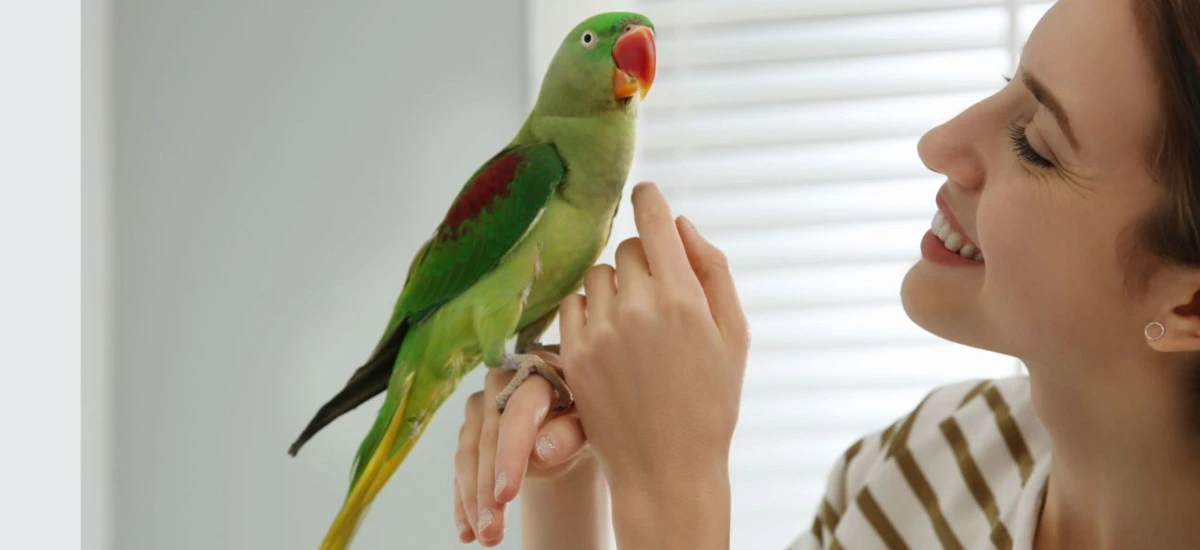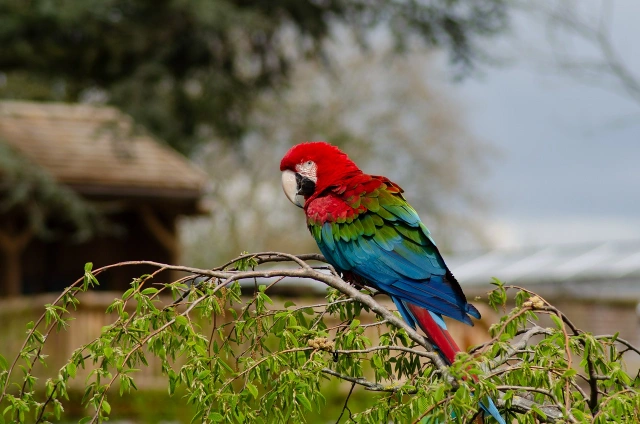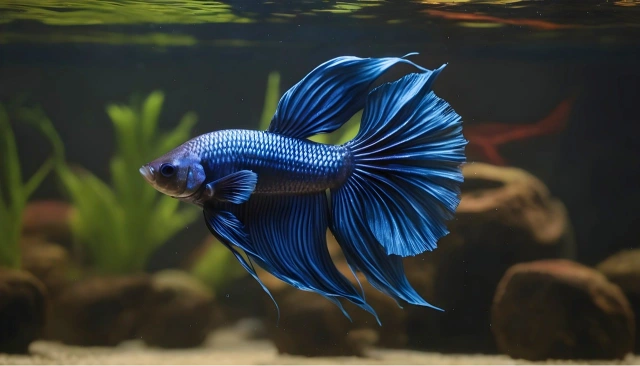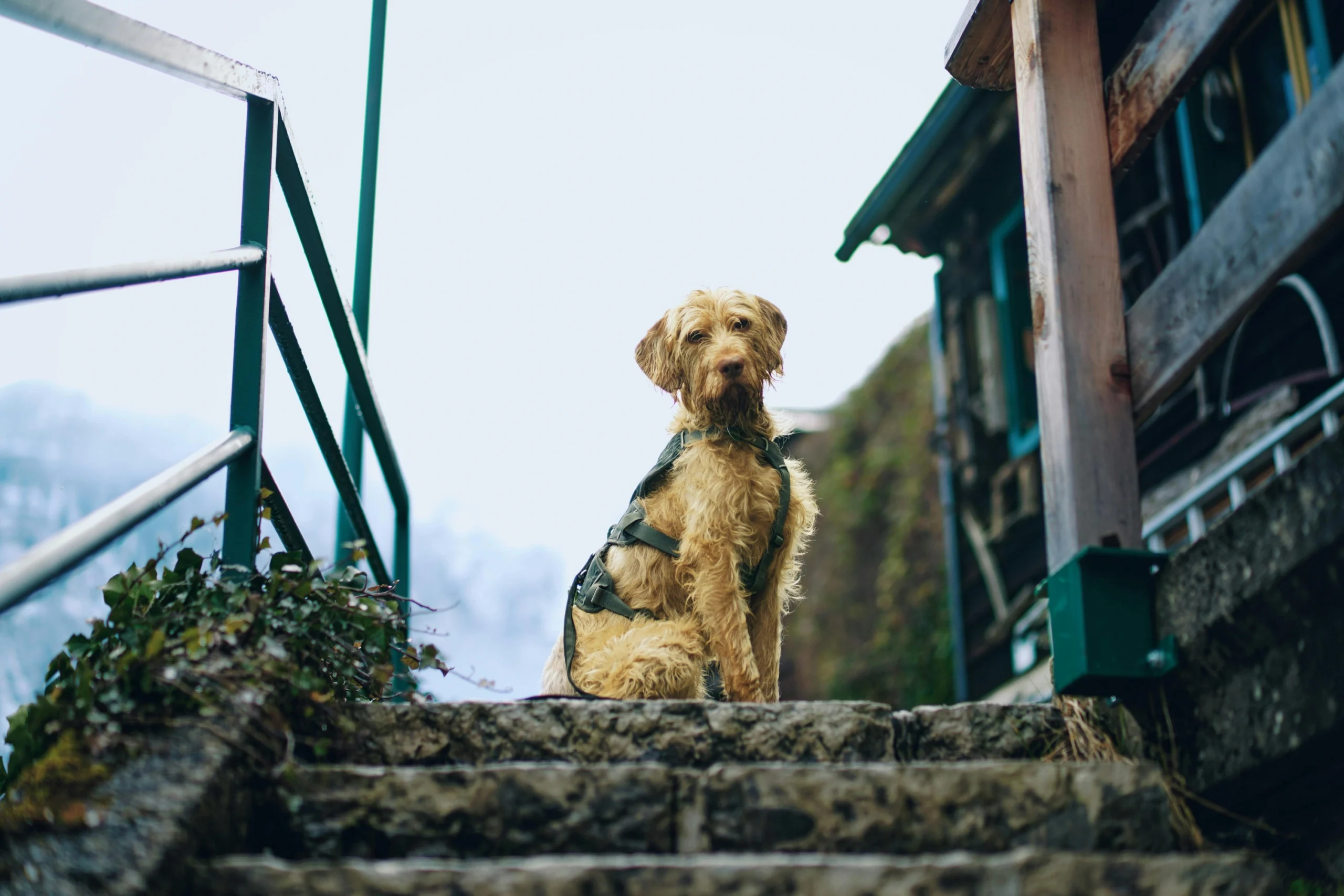Table of Contents
ToggleHave you ever dreamt of having a pet that talks and interacts with you in the most fascinating ways? If so, then parrots are your ticket to an extraordinary companionship. These fascinating birds are among the most fascinating pets because of their unique ability to mimic human speech and trainable social skills.
Parrot socialization training is a journey filled with wonder and joy, as these feathered friends exhibit remarkable intelligence and adaptability when provided with the right environment and guidance. From mastering basic commands to developing complex communication skills, parrots have the potential to amaze their owners with their quick wit and charming personalities.
As a professional In this article, I will explore the captivating world of parrot socialization training, exploring the unique methods and techniques that can transform these intelligent creatures into delightful companions.
Socialization training serves several critical purposes.
Building Trust
Parrot socialization training is crucial in building trust between the bird and its human caretaker. By exposing the parrot to various stimuli, environments, and social interactions, owners can gradually help their feathered friend become more comfortable and trusting of new experiences.
This process fosters positive behavior and strengthens the bond between the parrot and its owner. Consistent exposure to different people, animals, and situations helps the birds learn to adapt and feel secure in unfamiliar circumstances.
Reducing Stress and Anxiety
Parrot socialization training is crucial for reducing stress and anxiety in our avian companions. When properly socialized, parrots are exposed to various stimuli and experiences in a controlled and positive manner. This exposure helps them become familiar with different people, environments, and situations, ultimately reducing stress responses when faced with new or unfamiliar experiences.
By gradually introducing them to new people, objects, and environments through positive reinforcement techniques, parrots can learn to feel more comfortable and less anxious in novel situations.
Furthermore, socialization training can also help parrots develop coping skills for managing stressful events. By providing them with the opportunity to experience a wide range of stimuli in a safe and supportive environment, you can help build their resilience and adaptability.
This proactive approach can prevent the development of phobias or excessive fear responses towards specific triggers, ultimately contributing to improved overall well-being for your feathered friends.
Encouraging Positive Behavior
Socialization training serves several critical purposes for parrots, with one of the most significant being encouraging positive behaviour. Through socialization, parrots learn acceptable behavior in human environments, such as interacting calmly with people and other animals.
This can promote pleasant connections with their human companions and lessen the chance of undesirable behaviours like excessive yelling or biting. Proper socialization can also help parrots develop a sense of trust and security, leading to a happier and more well-adjusted bird overall.
7 Tips for Effective Parrot Socialization Training
Start Early
Early intervention is critical when it comes to socialization training for your parrot. Beginning the process as soon as possible can significantly impact your parrot’s ability to interact positively with humans and other animals. Starting this training during the critical developmental period of your parrot’s life can help them become more adaptable, confident, and well-adjusted creatures.
One practical tip for successful parrot socialization training is to expose them to various experiences and environments from an early age. This could include introducing them to different people, places, sounds, and objects. By gradually exposing your parrot to new stimuli, you can help prevent fear or anxiety-related behaviors from developing later in their lives.
Gradual Introduction
One crucial aspect of practical parrot socialization training is the concept of gradual introduction. For a seamless and happy transition for the parrot and its surroundings, gradual exposure is essential when bringing a new bird into your house or introducing it to other pets.
Start by allowing the parrot to acclimate to its immediate environment before submitting it to new people, animals, or spaces.
This gradual approach helps prevent overwhelming the parrot, reducing stress and anxiety while facilitating a more successful socialization process.
Additionally, when gradually exposing your parrot to new stimuli, be mindful of their body language and behavior cues. Please pay attention to any signs of fear or discomfort and be prepared to adjust the pace of their exposure accordingly.
You may foster an environment where your parrot feels confident and trusted in their relationships with others by moving at a pace that suits their comfort level.
Flight Tricks
Regarding parrot training tips, socialization is crucial in shaping their behavior. Owners must focus on bonding with their feathered companions through consistent handling and positive interactions. Parrots can develop trust and form strong bonds with their human counterparts by offering rewards and engaging in playful activities.
Training tips for parrots go beyond basic commands; they involve understanding the individual preferences of each bird and tailoring the training methods accordingly. Incorporating interactive games and puzzles into training sessions can help stimulate their intelligence and keep them engaged.
Parrot interaction goes beyond verbal communication; it involves observing body language cues, facial expressions, and vocalizations to understand their needs and emotions. Owners can cultivate a harmonious relationship with their feathered friends based on mutual trust and understanding by creating a nurturing environment filled with love, respect, and mental stimulation.
Positive Reinforcement
Parrot socialization training can be challenging, but positive reinforcement is critical to success. Rewarding good behaviour with treats and praise is essential when working with parrots. This creates a positive association with socializing and encourages the bird to engage with its human companions.
In addition to rewards, clicker training can be efficient in parrot socialization. The distinct sound of a clicker helps the bird understand which behaviours are being rewarded, making the training process more transparent and efficient.
Respect Boundaries
Understanding your parrot’s body language is crucial for practical socialization training. You can respect their boundaries and build trust by paying attention to their cues.
For instance, if your parrot shows signs of discomfort or fear, such as fluffing up their feathers or backing away from you, giving them space is essential. When you push someone beyond their comfort zone, mistrust and anger may result.
Consistency is Key
When it comes to parrot socialization training, consistency is indeed the key to success. Consistent interaction with your parrot helps build trust and strengthens the bond between you and your feathered friend.
Schedule regular socialization sessions with your parrot to reinforce positive behavior and promote healthy development.
By consistently exposing your parrot to various situations, you can help them feel comfortable and secure in multiple settings, making them easier to handle and reducing stress for you and your pet.
Enrichment Activities
Consider implementing foraging activities to stimulate your parrot’s instincts and keep them mentally engaged. Hide treats in various toys or around their environment, encouraging your parrot to explore and problem-solve actively.
In addition to offering cerebral stimulation, this kind of enrichment builds the relationship between you and your feathered companion by helping them trust you as a source of amusement and rewards.
Conclusion
In conclusion, socialization training is crucial for parrots to thrive in a human environment. You may assist them in becoming self-assured and adaptive by exposing them to various people, animals, and situations. Owners can build trust and strong bonds with their parrots through positive reinforcement and patience.
It is important to remember that each parrot is unique and may require individualized approaches to socialization. With dedication and consistency, parrot socialization training can lead to happier, more well-adjusted birds that enrich your lives with intelligence and companionship. Start your parrot’s socialization journey today and watch as they flourish in their interactions with the world around them.
FAQs
Q: How important is socialization for parrots?
A: Socialization is crucial for parrots to develop good behaviour and mental health.
Q: What are some effective socialization techniques for parrots?
A: Spending quality time with your parrot, providing toys and activities, and introducing them to new experiences can help with socialization.
Q: Can older parrots be socialized?
A: Older parrots can still benefit from socialization efforts, although it may take more time and patience.
Q: Is it necessary to train a parrot for socialization?
A: Training can help socialize and essocializationaries and positive behaviours.
Q: How long does it take to socialize a parrot?
A: The time to socialize and socialize a parrot varies depending on temperament and past experiences.
Q: Are there any risks associated with parrot socialization?
A: Some risks include aggression and socialization behaviors if not approached correctly.

Dr. Usman Bajwa, a dedicated veterinarian with a passion for pets, brings years of expertise to the world of pet grooming. Through his blog, he shares valuable insights and practical tips to help pet owners provide the best care for their furry companions. With a focus on promoting the health and happiness of pets, Dr. Usman articles offer easy-to-follow guidance on grooming techniques. When he’s not writing, you can find him at his clinic or enjoying time with his own beloved pets.




